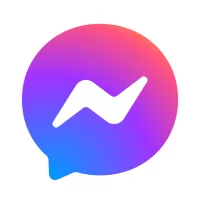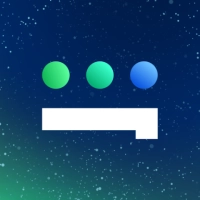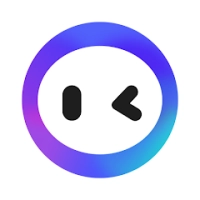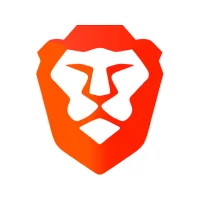How AI-generated apps are reshaping software development in 2025
25 min read AI-generated apps have revolutionized how you handle repetitive coding tasks. Tools like GitHub Copilot generate boilerplate code after you type a function signature, saving time and ensuring best practices. December 03, 2024 10:20
Image Source: pexels
AI-generated apps are revolutionizing how you approach software development. These tools automate repetitive tasks, allowing you to focus on solving complex problems. For example, programmers using AI tools can complete 126% more projects weekly. This efficiency means you can achieve more in less time. AI also enhances creativity by generating innovative solutions and enabling rapid experimentation. Future tools will even create complex code from natural language descriptions, saving hours of manual work. Whether you're a seasoned developer or a beginner, these advancements make software creation more accessible than ever.
Key Takeaways
- AI-made apps handle boring coding tasks. This lets developers solve harder problems and work faster.
- These tools boost creativity by offering new ideas and quick testing. They make building software easier for everyone.
- No-code and low-code tools let non-coders make apps. This makes it simpler for more people to join software creation.
- AI tools make code better and faster. They help developers finish work quickly with fewer mistakes.
- Learning and following rules are key to using AI well in software development.
The transformative impact of AI-generated apps on software development
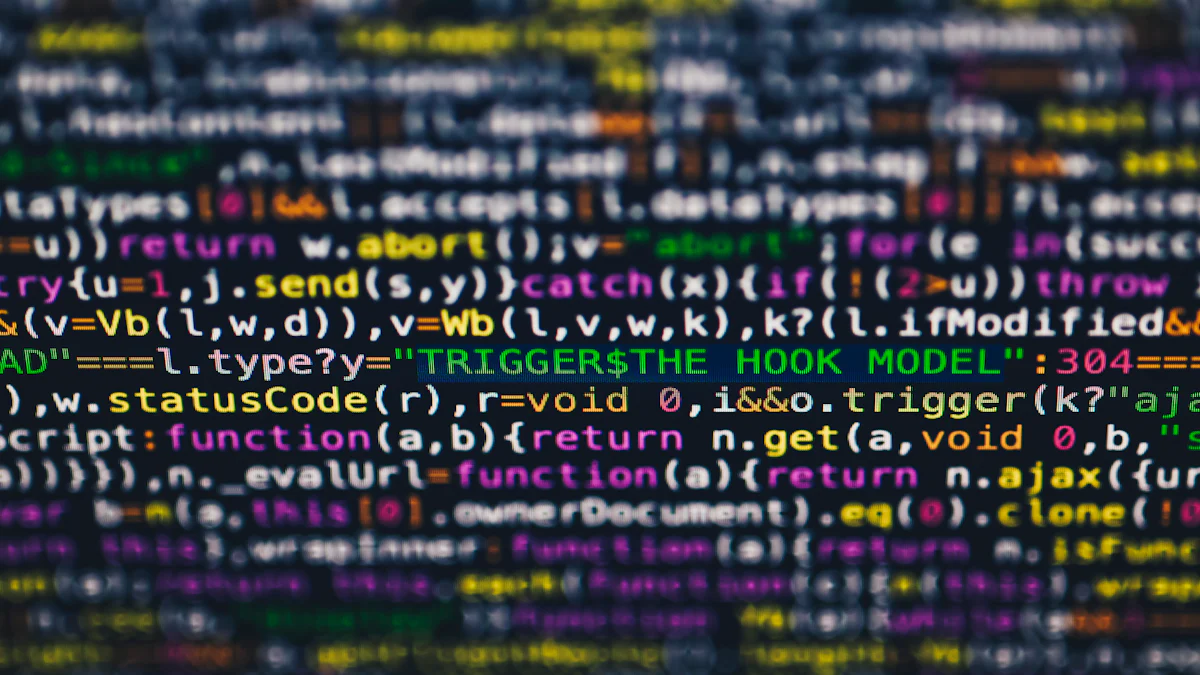
Image Source: pexels
Automation and efficiency
Reducing repetitive coding tasks
AI-generated apps have revolutionized how you handle repetitive coding tasks. Tools like GitHub Copilot generate boilerplate code after you type a function signature, saving time and ensuring best practices. Tabnine enhances your workflow by offering context-aware suggestions, allowing you to focus on solving complex problems. Automated testing tools, such as Testim, adjust test cases automatically, reducing the need for manual updates. These advancements not only save time but also improve code quality by detecting errors early. Developers using these tools report a 2.6% improvement in workflow efficiency and a 3.4% boost in code quality.
Accelerating development timelines
AI-generated apps significantly shorten development timelines. DeepCode scans your code in real-time, identifying issues and suggesting fixes like a spellchecker. This allows you to address problems early, avoiding delays. By automating repetitive tasks, these tools free up your time for more meaningful work, increasing job satisfaction by 2.2%. With AI handling routine tasks, you can complete projects faster and with fewer errors.
Enhancing innovation
Generating creative solutions with AI
AI-generated apps empower you to explore creative solutions. Machine learning algorithms analyze user data to optimize designs, helping you create better software. These tools can also generate multiple design concepts quickly, enabling you to experiment with innovative ideas. By automating repetitive design tasks, AI reduces errors and enhances your workflow efficiency.
Enabling rapid prototyping and experimentation
AI accelerates prototyping by creating digital models and simulations. This eliminates the need for physical prototypes, saving time and resources. You can also conduct extensive A/B testing with AI, experimenting with design variations to find the best solution. These capabilities allow you to innovate faster and bring your ideas to life more efficiently.
Democratizing software creation
Empowering non-developers with no-code/low-code platforms
AI-generated apps have made software creation accessible to everyone. No-code and low-code platforms enable you to build applications without extensive programming knowledge. For example, Google Colab and Google Cloud Platform allow you to create personalized financial advice apps using powerful AI tools. These platforms lower the barriers to entry, making it easier for non-developers to turn their ideas into reality.
Lowering barriers to entry in software development
Generative AI tools simplify coding for beginners, allowing you to create functional applications without deep technical expertise. Open-source large language models integrated into cloud environments further democratize access to advanced AI capabilities. However, this accessibility has also led to challenges, such as an increase in subpar code quality and security vulnerabilities. Despite these risks, the benefits of empowering more people to participate in software development are undeniable.
Real-world applications of AI-generated apps
AI in code generation
Tools like GitHub Copilot and ChatGPT for coding assistance
AI tools like GitHub Copilot and ChatGPT have transformed how you approach coding. These tools provide real-time suggestions, helping you write code faster and with fewer errors. For example, Copilot excels at autocompleting code snippets, offering intelligent suggestions for functions and variables. It adapts to your workflow, making it easier to tackle complex coding challenges. ChatGPT, on the other hand, assists by explaining code, debugging errors, and even generating documentation. By integrating these tools into your daily routine, you can improve your productivity and maintain consistent coding standards.
Automating boilerplate code and complex algorithms
AI-generated apps simplify repetitive tasks like creating boilerplate code. Tools such as Zencoder and TabNine automate tasks like generating API endpoints, database models, and CRUD operations. This reduces the time you spend on manual coding. Zencoder also aids in refactoring legacy code, suggesting optimizations that reduce technical debt. For complex algorithms, GitHub Copilot provides well-documented examples, ensuring your code is both efficient and readable. These advancements allow you to focus on higher-level problem-solving.
AI in debugging and testing
Identifying and resolving bugs with AI-powered tools
AI-powered debugging tools make it easier for you to identify and fix bugs. Tools like DeepCode analyze your code and suggest improvements, while Snyk Code identifies vulnerabilities in real-time. BugSnag tracks bugs across platforms, offering actionable insights to resolve issues quickly. Microsoft IntelliCode learns from your codebase patterns, optimizing the debugging process. These tools not only save time but also improve the accuracy of bug detection, ensuring higher software quality.
Automating testing to improve software quality
AI has revolutionized software testing by automating repetitive tasks. Tools like Testim and Mabl create and adapt test cases automatically, ensuring they remain effective as your application evolves. Applitools uses AI for visual UI testing, detecting even subtle changes in user interfaces. Functionize simplifies end-to-end testing with dynamic learning, making it easier for you to manage complex workflows. By automating testing, you can enhance reliability and reduce the workload on QA teams.
AI in deployment and maintenance
Predictive maintenance using AI analytics
AI-driven predictive maintenance helps you prevent unplanned downtimes. By analyzing real-time data, such as temperature and vibration, AI algorithms identify patterns that signal potential failures. This proactive approach extends the lifespan of your systems and optimizes maintenance schedules. Incorporating historical data and sensor inputs further refines these predictions, allowing you to prioritize tasks and allocate resources effectively.
Automating CI/CD pipelines for seamless updates
AI streamlines deployment by automating tasks in CI/CD pipelines. For instance, AWS CodeGuru reviews your code to detect issues before deployment, ensuring higher quality. AI also handles infrastructure tasks like load balancing and scaling, improving build efficiency. Intelligent monitoring detects performance issues in real-time, enabling you to address them quickly. These advancements make deployment faster and more reliable, reducing the risk of errors.
Challenges and risks of AI-generated apps
Security vulnerabilities
Risks of AI-generated code being exploited
AI-generated apps introduce new security risks that you must address. Attackers can exploit vulnerabilities like insecure plugin designs or poisoned training data. These risks include:
- Deepfake generation: AI can create realistic fake videos or audio, leading to identity theft.
- Automated phishing attacks: AI generates highly personalized phishing emails, making them harder to detect.
- Malicious code generation: AI tools can produce malware variants that evade traditional security measures.
These vulnerabilities highlight the importance of robust security measures in AI-generated apps.
Addressing malicious AI-generated software
Malicious AI-generated software poses significant threats. Attackers can use AI to optimize cyberattacks, such as ransomware or phishing. Automated malware creation increases the threat landscape, even enabling novice programmers to develop sophisticated attacks. You can mitigate these risks by investing in cybersecurity tools and educating your team about AI-related threats.
Ethical concerns
Bias in AI algorithms and its implications
Bias in AI algorithms can lead to unfair outcomes. For example, flawed training data may perpetuate discrimination, affecting decisions like hiring or loan approvals. This bias erodes trust in AI systems and raises legal and ethical concerns. You must prioritize fairness and transparency to ensure ethical AI use.
Intellectual property and ownership disputes
AI-generated apps blur the lines of intellectual property ownership. If an AI creates code, determining who owns it becomes complex. This ambiguity can lead to disputes, especially when multiple parties contribute to the AI's training data. Clear guidelines are essential to address these challenges.
Shifting skill requirements
The growing need for AI and data science expertise
AI-generated apps demand new skills. You need to understand AI algorithms, data science principles, and data management. Proficiency in these areas ensures you can effectively work with AI systems and leverage their capabilities.
Balancing human creativity with AI automation
Balancing human creativity with AI automation is crucial. Collaborative intelligence, where humans and AI work together, enhances problem-solving and innovation. Continuous feedback loops help refine AI applications, ensuring they meet user needs while preserving human input.
Strategies for adapting to AI-generated apps
Upskilling for developers
Learning AI and machine learning fundamentals
To thrive in a world shaped by AI-generated apps, you need to master AI and machine learning basics. Start by understanding the core concepts, such as types of AI (rule-based systems, machine learning, and natural language processing) and machine learning algorithms like supervised and unsupervised learning. Dive into deep learning techniques, including CNNs and RNNs, and familiarize yourself with essential programming languages like Python and Java. Frameworks like TensorFlow and PyTorch will help you implement these concepts effectively.
Hands-on learning is equally important. Participate in team projects or hackathons to apply your skills in real-world scenarios. Pursuing certifications, such as IBM's AI Developer Professional Certificate, can also boost your expertise. Pairing with experienced mentors will provide valuable guidance as you navigate this evolving field.
Embracing continuous learning to stay competitive
The rapid pace of AI advancements demands a commitment to continuous learning. Attend seminars, join knowledge-sharing sessions, and stay updated on the latest trends. Align your learning goals with your organization's objectives to ensure relevance. By fostering a culture of ongoing education, you can remain competitive and adapt to new challenges.
Responsible AI integration
Establishing ethical guidelines for AI use
Ethical AI integration begins with clear guidelines. Prioritize transparency by explaining AI capabilities and limitations. Ensure fairness by eliminating bias and promoting equitable outcomes. Protect user privacy by securely handling data and obtaining consent. Accountability is key—take responsibility for the impacts of AI systems. By adhering to these principles, you can build trust and create systems that prioritize human well-being.
Ensuring transparency and accountability in AI systems
Transparency and accountability are critical for responsible AI use. Regularly audit AI systems to identify potential biases and vulnerabilities. Invest in explainable AI to make processes understandable. Publish transparency reports detailing how data is collected, stored, and used. These practices ensure that your AI systems remain reliable and trustworthy.
Leveraging AI for advanced innovation
Combining AI with emerging technologies like IoT and blockchain
Combining AI with technologies like IoT and blockchain unlocks new possibilities. IoT devices generate vast amounts of data, which AI analyzes to provide actionable insights. Blockchain ensures data integrity and security, creating a reliable foundation for AI-driven solutions. Together, these technologies enhance automation and innovation across industries.
Exploring AI-driven solutions in niche industries
AI-generated apps are transforming niche industries. In healthcare, AI analyzes patient data to improve diagnostics. In agriculture, it optimizes crop yields through predictive analytics. By exploring these specialized applications, you can uncover opportunities to innovate and address unique challenges.
AI-generated apps are transforming software development by automating tasks and enhancing innovation. These tools improve efficiency and code quality, enabling developers to focus on solving complex problems. Companies like Toyota and Coca-Cola have already reported significant productivity gains through AI integration. While challenges such as security risks and ethical concerns remain, you can address them with responsible AI practices and continuous learning. The collaboration between humans and AI promises long-term benefits, including faster decision-making, democratized development, and personalized user experiences. This partnership will shape a future of unprecedented growth and innovation.
FAQ
What are AI-generated apps?
AI-generated apps use artificial intelligence to automate coding, debugging, and testing. These tools analyze data, generate code, and assist with software development tasks. They help you save time and improve efficiency by handling repetitive or complex processes.
Do AI-generated apps replace developers?
No, AI-generated apps don’t replace developers. Instead, they act as tools to enhance your productivity. You can focus on creative problem-solving and strategic tasks while AI handles repetitive coding and testing.
Are AI-generated apps secure?
AI-generated apps can introduce security risks, such as vulnerabilities in generated code. You must implement robust security measures, like regular code reviews and vulnerability scans, to mitigate these risks. Staying informed about AI-related threats also helps protect your projects.
Can non-developers use AI-generated apps?
Yes, no-code and low-code platforms make AI-generated apps accessible to non-developers. These tools let you build applications using drag-and-drop interfaces or simple commands, lowering the barrier to entry for software creation.
How can you start learning about AI-generated apps?
Begin by exploring tools like GitHub Copilot or ChatGPT. Learn basic AI and machine learning concepts through online courses or tutorials. Practice using no-code platforms to understand how AI simplifies software development.





